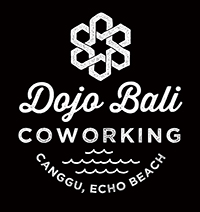When I first started out as a freelancer I managed to acquire a whole host of new clients in a relatively short space of time. I may have had luck on my side, but I also worked really hard at getting myself out there in front of the eyes of prospective new clients. Now that I am growing my SEO Agency I have been thinking back to what methods worked well and I wanted to share those tips with you.
Now these tips will assume you already have a website, but if you don’t, go and build one! Whether you’re a writer, a developer or a lifestyle coach, a website adds incredible legitimacy to your business.
Here are some of the methods that worked really well for me when looking to acquire brand new clients…
1. Write High Quality Blog Posts
This one was a no-brainer for me. Working in SEO you get used to building conversion funnels, and drawing in users through blog pages is a popular method. Now, anyone can produce blog content but if you’re any good at what you do you will be able to add unique insight and learnings that readers likely don’t already know about.
And that’s the key to producing high quality content. My first article on my site took me 2 weeks to write because I wanted it to be comprehensive and incredibly helpful to readers. I targeted a specific target audience (nonprofits) and the end result was beyond my expectations. The piece I published was a guide to SEO for charities, I’ll discuss where I shared the article in my next point, but the end result was that I began receiving around 10 enquiries a week which was huge for a newbie.
The trick was that it was a highly dedicated resource for a specific, niche audience which helps them to relate and feel the tips are achievable. I’ve been told that the content has been added to charity resource hubs (for paying members), so that lets me know that readers found it particularly useful.
2. Facebook Groups
When I was starting out I joined a tonne of Facebook groups and, I’ll be honest, the vast majority were dreadful. As you may well have experienced, poorly run Facebook groups can be full of people posting adverts, self-promotion and ridiculous questions. However, when you stumble upon some hidden gems they can be hugely impactful. To get started I would recommend joining groups for:
- Your industry (SEO/Coaches/Developers)
- Freelancers/Small Businesses
- Industries who could be full of potential clients
The latter one is the key. If you are targeting a particular industry, niche or location then join groups where your audience is. In my case I joined nonprofit groups (where my first post then got heavily shared), groups for businesses in my hometown, SAAS groups, ecommerce groups, blogger groups and many more very specific industry groups.
You shouldn’t use these groups to self-promote, instead you should wait for inevitable questions that you can answer. 99% of the time I replied to questions I didn’t even mention my services, but they saw expertise and begun enquiring on their own part. Posts in groups stick around forever which means that whenever people search the group for a topic, you will appear again and again as the expert who answered the question.
3. Work for Reviews
You may have noticed from the article I wrote that I offered free audits to gain source material for the content. I hadn’t even thought of asking for reviews but when they all began asking where they could leave me a review as a thank you, I realised the potential of this. Slowly I started to build up a great profile of Google reviews and LinkedIn reviews all coming from legitimate companies giving me 5 stars.
You don’t need me to tell you the power of reviews in the 21st century, their impact is immeasurable. Simply having just 5 or more positive reviews of you as a service provider can be invaluable for recruiting new clients and long-term growth.
Of course, working for free is a really difficult concept as a freelancer. There are memes and whole SubReddits mocking those who ask for exposure as a form of payment. But when you’re the one offering, it’s a whole different ball game. This is because you can target legitimate companies, websites or respected individuals whose reviews will be linked back to them. This is quite different from a shoutout on Instagram by a random dude with 700 followers.

In the initial days of setting yourself up, you do have to hustle and get your name out there, essentially working hard with no direct income as a result. And that can be tough, especially when you are trying to balance other work commitments (and a social life!). But I credit those long hours of hustling with the continued growth in enquiries I now experience.
If you’re not willing to completely work for free, you could also offer a generous discount in return for reviews.
4. LinkedIn
LinkedIn has been one of the most powerful client acquisition channels I have used throughout my whole freelancing career. I remember within the first week of deciding to go freelance, I had a brand new client who came to me through LinkedIn. All because I had made changes and optimisations to my profile that showcased me as an expert.
Here are some of the LinkedIn methods I employed to boost my profile:
- Profile URL: Did you know that you can change the URL of your LinkedIn profile? I changed mine to include “seo-freelancer-uk” and this had a huge impact.
- Image: Of course, make your image 100% professional. A head shot of you smiling with a white background, simple.
- Write about what you do: In both your profile section and job section you are given the opportunity to write lots about exactly what you do and what you offer. Utilise it!
- Complete all sections of your profile: LinkedIn has its own profile ranking techniques, filling out every available field is a factor used to determine who appears first in search results.
- Post updates: Always post useful updates and tips for your connections, make sure to come up with inspiring content to write (I aim for twice a week).
- Make connections: Connect with others in your industry and in your target industry. You can be very specific with your search and sometimes just connecting brings about an enquiry straight away.
5. Focus on a niche
This is a common piece of advice and, whilst I don’t perfectly follow it, there is good value in it. Focusing on one specific industry or niche enables you to appear for searches around more targeted terms such as “Real estate copywriter” or “E-commerce site speed specialist” for example. It can be highly effective to figure out a niche you wish to focus on and build up a big online presence targeting really specific search terms with lower competition.
In my personal experience I now work with some of the biggest charities in the UK simply from doing just a little bit of niching down. I still work with clients from a whole range of industries, but my name is now out there and recommended by those in the nonprofit sector so the enquiries come in quite naturally.
There are better resources you can find on finding a niche than this one, so I won’t ramble too much. Suffice to say, it’s an idea worth exploring.
Hopefully those tips help you gain some insight into methods that work for acquiring new clients. The main thing to remember is to keep persisting and put in the hours until you start to see results. I may have seen results from mine quite early on, but there was months of background work beforehand that I sometimes don’t give enough credit to. But trust me, you will be glad you did it when the enquiries start coming in!






